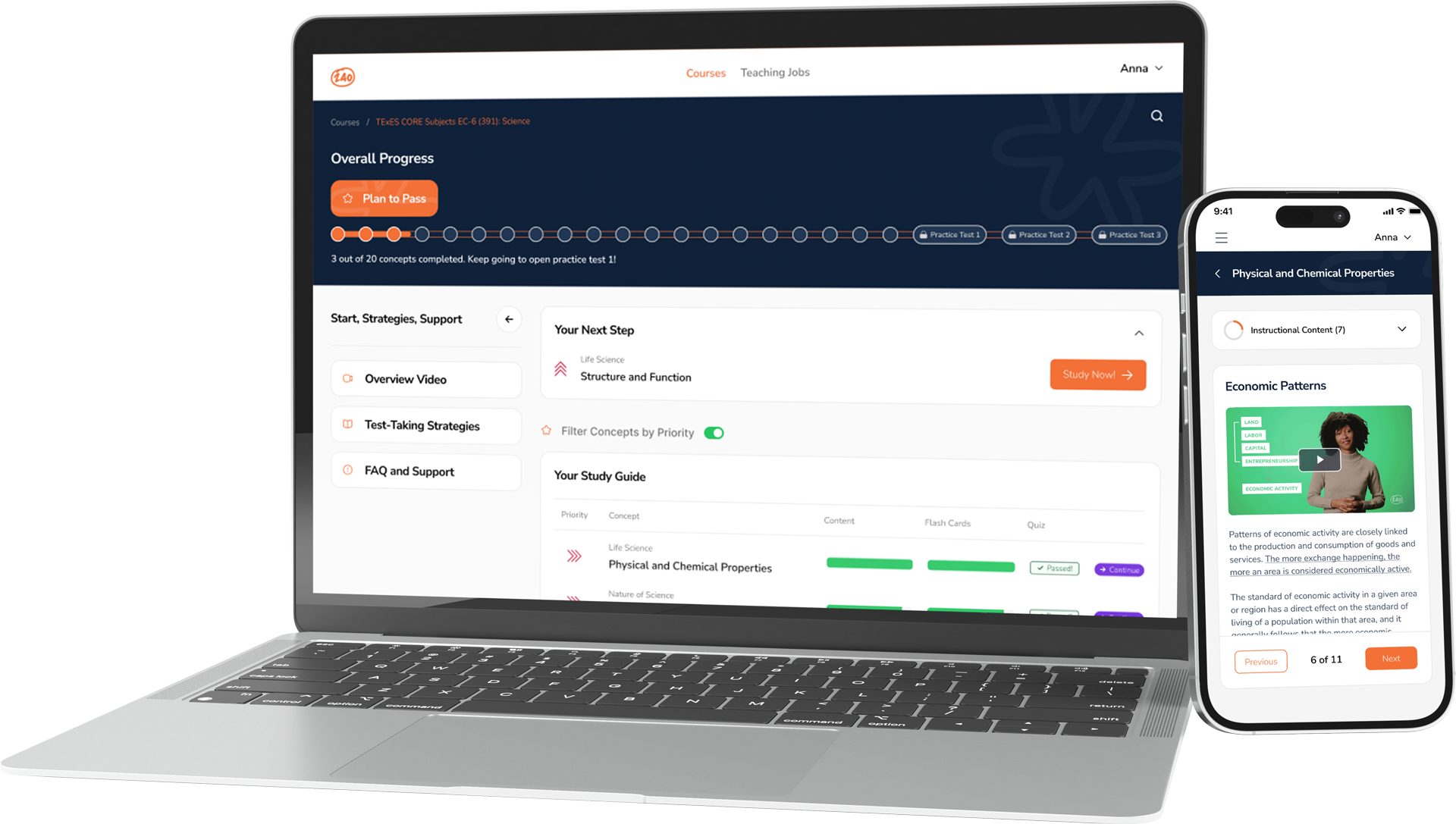How hard is the Foundations of Reading (190)?
The Foundations of Reading exam tests reading skills and how well the candidate can teach reading to students. Different factors, such as professional or academic background, the level of preparation, and test day conditions, can all make an exam seem harder or easier for each person. Preparing for the Foundations of Reading exam with early and effective studying is the best way to breeze through the exam and crush your testing goals!
How do you pass the Foundations of Reading?

Follow these steps to pass the NC Foundations of Reading:
1. Register for the test
Registering is an important first step to passing the exam. Register for the Foundations of Reading (190) by making an account on the NC FoR website. You can choose a test center and appointment time after registration. The full test fee is also charged during registration.
2. Build a study plan
A study plan will help you stay on track for passing the Foundations of Reading. Include regular study sessions and achievable goals.
3. Follow the study plan
Stick to your study plan by committing regular focused time to studying for the Foundations of Reading exam. Studying includes learning about the test, reviewing study guides, and working practice problems.
4. Make a test day plan
Making a test day plan ahead of time will reduce stress and keep your mind focused on passing the test. A test day plan may include a healthy meal, picking out comfortable clothes, and rechecking all materials and test policies before leaving home.
5. Pass the test
Congratulations!
Where do you find resources to study for the Foundations of Reading (190)?

There are lots of resources for studying for the NC Foundations of Reading exam. 240 Tutoring is a resource that brings all the test materials to help you succeed together in one place. The NC FoR guide contains important test information, thorough overviews of each subarea, and practice questions that are based on the real exam. You can also find test information, a basic exam breakdown, and a selection of practice problems in the preparation section of the NC FoR website.
To learn more about this exam before you begin studying, check out this article.
What are the best resources to use to study for Foundations of Reading (190)?
The best resources to use for the Foundations of Reading exam include test information, study guides, and practice problems. Learning about the test, including registration, structure, and score reporting, can help increase confidence and improve your score. Study guides review all the key concepts that will be on each test competency. Finally, practice problems will help make the test language and question style seem more familiar. For the best preparation, make sure to spend time practicing both multiple-choice and open-response style questions.
There are different types of resources to choose from and it’s important to find the resource that fits you best. Dr. Kristy Mulkey can help you determine how to find the best resources for you.
Where do you find study guides for the Foundations of Reading?
You can find study guides for the NC Foundations of Reading exam here at 240 Tutoring.com. 240 Tutoring study guides are designed to comprehensively cover the information on the exam. Each guide starts with quick facts about the test, followed by an engaging and easy-to-use review of the test material. Read this article to learn more about 240 Tutoring study guides.
Study guides on limited topics related to the exam can also be found on the NC FoR website. These guides include information on testing strategies and sample questions.
How do you use study guides to study for the Foundations of Reading?
A study guide is a concise review of all the information that is covered on an exam. To use a study guide, read through it slowly and write down any questions or confusions that come to mind as you read. After completing the first reading of the study guide, review your notes, answer your questions, and expand on any confusion by using academic sources in print or on the internet. This step is very important for gaining a deeper mastery of the material. After you fully understand all the material in a topic, move on to the next one until you have completed the study guide. Use a study plan to know approximately how long each study guide should take to review, and add more time into your plan as necessary. It is good practice to review each study guide two to three times before test day. This will ensure that the material is both fresh in your mind and stored in long-term memory. In general, repeated reviews of the study guide will take less time than the first read-through.
How do you study for the Foundations of Reading?
Study for the NC Foundations of Reading exam by building a study plan and sticking to it! Remember that short periods of focused study time are more effective than long periods of distracted study time. For example, you might study for 60 minutes MWF, broken into 40 minutes of study guides and 20 minutes of practice problems. Remember to adapt your plan as you go, and include time to learn about the test, review study guides, and work practice problems. Study guides are especially useful for the NC FoR exam because the topic is so broad. Studying from raw materials such as lectures and textbooks is not the best approach to this exam.
When should you study for the Foundations of Reading?
For best results, start studying early for the NC Foundations of Reading exam. Starting two to three months before the test date means you can complete your study plan at a comfortable pace. Leaving more time also adds flexibility in case of an unexpected schedule change that affects your study plan. Remember to learn about the test, review each subarea two to three times, and complete at least one full-length test before exam day.
Do NOT cram for the NC FoR exam. Cramming a few days before the exam may force you to sacrifice sleep and healthy routines, and it is counterproductive to retaining information from study guides. If you find yourself in a time crunch, watch this video on effective cramming.
How much should you study for the Foundations of Reading?
How much studying for the NC Foundations of Reading exam is required may differ from person to person. Professional experience, academic background, and individual strengths and weaknesses should all be considered when building your study plan and determining how much to study. It’s OK to make changes to your study plan as you go. For example, you might find that the content in Subarea III is a little more challenging than that of Subarea II, so you could allocate more time to mastering the challenging subarea. Conversely, another strategy could be that you spend more time gaining full mastery of the three less challenging subareas instead of wasting time on a subarea that is more difficult. Consider different study strategies and choose the best plan for you and your goals.






